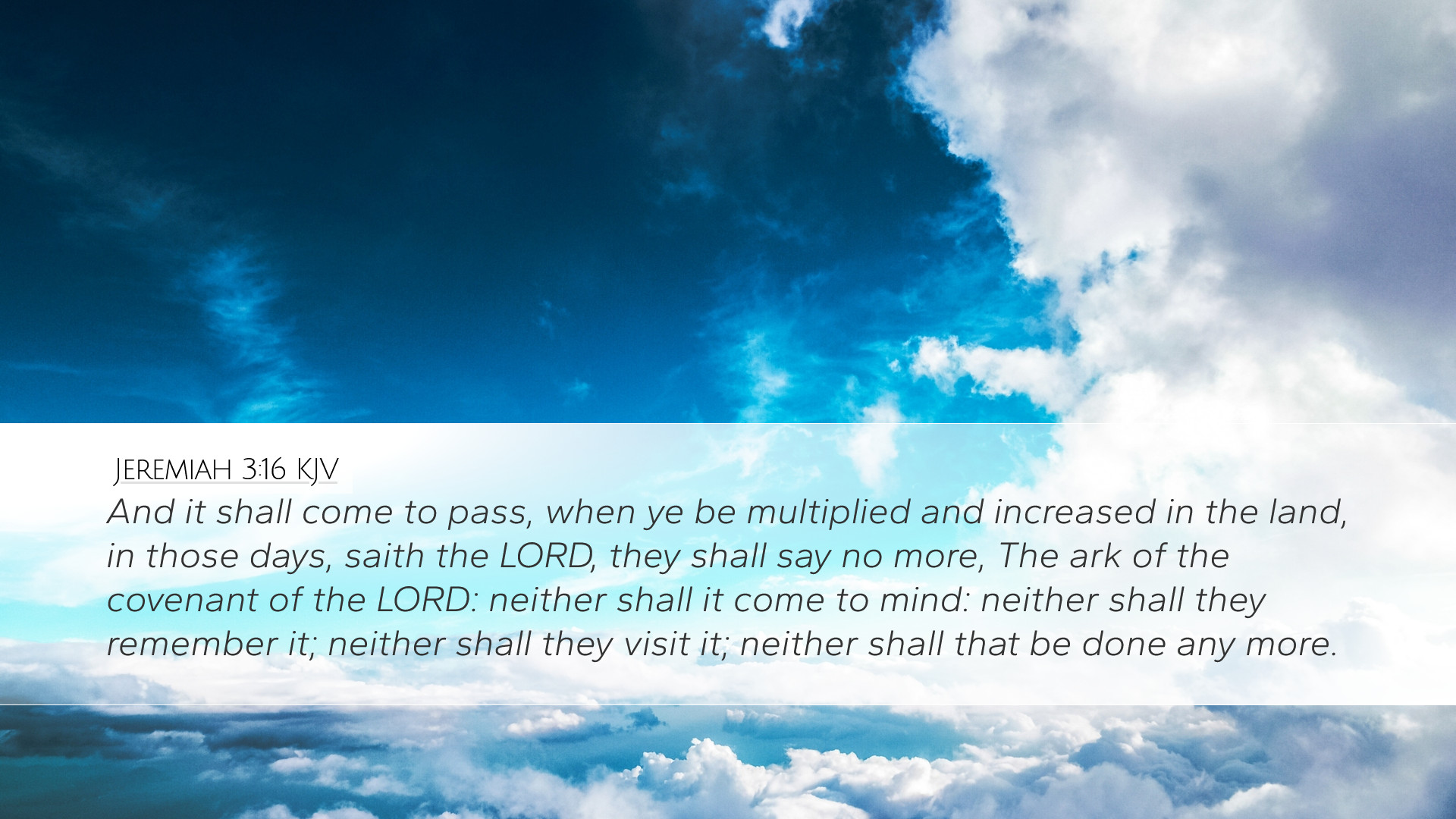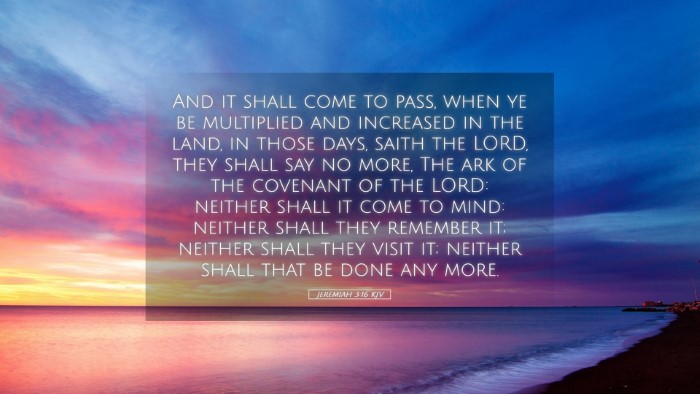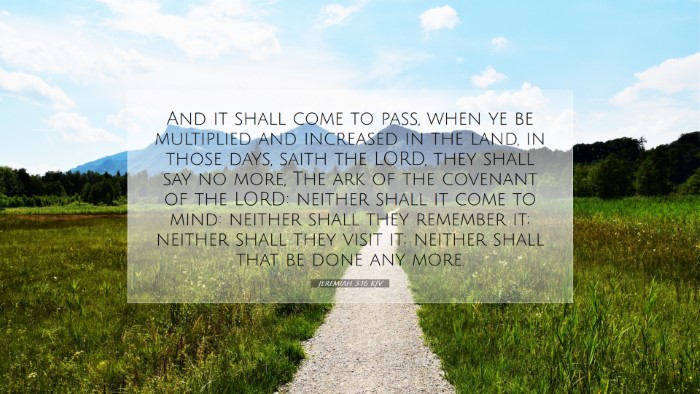Jeremiah 3:16 Commentary
Jeremiah 3:16 states: "And it shall come to pass, when ye be multiplied and increased in the land, in those days, saith the Lord, they shall say no more, The ark of the covenant of the Lord: neither shall it come to mind: neither shall they remember it, neither shall they visit it, neither shall that be done any more." This verse presents a significant promise and pivot in the narrative of God's dealings with His people.
Contextual Understanding
The Book of Jeremiah primarily addresses the impending judgment upon Judah due to their persistent unfaithfulness and idolatry. Yet, interspersed within these warnings are messages of hope, restoration, and future blessings. Here, in chapter 3, God is speaking through the prophet Jeremiah, prophesying about a time of renewal for His people after a period of exile and judgment.
Insights from Public Domain Commentaries
-
Matthew Henry:
Henry emphasizes the significance of this promise. He notes that the multiplication of God's people represents their restoration and growth, both spiritually and numerically. He observes that the phrase "the ark of the covenant" symbolizes God's presence and the old covenant. The time is coming when the focus will not be on this earthly symbol, but rather on a more intimate and spiritual relationship with God.
-
Albert Barnes:
Barnes elaborates on the key theme of forgetfulness in this context. He asserts that the people of God will not dwell on the past or the physical presence of the ark anymore, for they will be so immersed in their relationship with God that the former manifestations of His covenant will become less relevant. This indicates a shift from the external to the internal and emphasizes the promise of a new covenant.
-
Adam Clarke:
Clarke highlights the transformative nature of this prophetic word. He articulates that the ultimate goal is not merely a physical restoration but a deep spiritual revival. According to him, the mention of not remembering the ark suggests a new covenant relationship where God’s presence will be known in a more profound way, deeply rooted in the hearts of His people rather than being confined to an object of worship.
Thematic Exploration
This passage leads us to several crucial themes:
-
Divine Restoration:
The promise of multiplication indicates that God is looking beyond judgment and towards restoration. His people, once scattered and diminished, will once again flourish, reminding scholars of the constant theme of hope throughout the Scriptures.
-
Shift in Worship:
With the statement regarding the ark of the covenant, there is a profound shift in how worship and the presence of God will be understood. This foreshadows the coming of Christ, where access to God is made personal, leading to the theme of discipleship that aligns with the teachings of the New Testament.
-
Internal vs. External:
This verse also signifies a transition from an external reliance on physical symbols of faith to an internal, personal relationship with God. This theme plays a crucial role in the understanding of spiritual maturity and faith.
Theological Implications
From a theological standpoint, Jeremiah 3:16 challenges contemporary believers to consider where their focus lies in their spiritual journeys. Are they relying on outward manifestations or engaging in a personal relationship with the Lord? This question remains pertinent today, as institutions and rituals can sometimes overshadow the genuine connection with God.
Conclusion
In conclusion, Jeremiah 3:16 conveys a profound message of hope, renewal, and the shift in covenantal understanding. It inspires pastors, students, theologians, and scholars alike to reflect on the importance of relationship over ritual, heart over habit, and divine presence over human objects. As God promises to restore and multiply, believers are called to embrace the newness of life in Christ, who ultimately fulfills the promises of this and many other prophecies.


